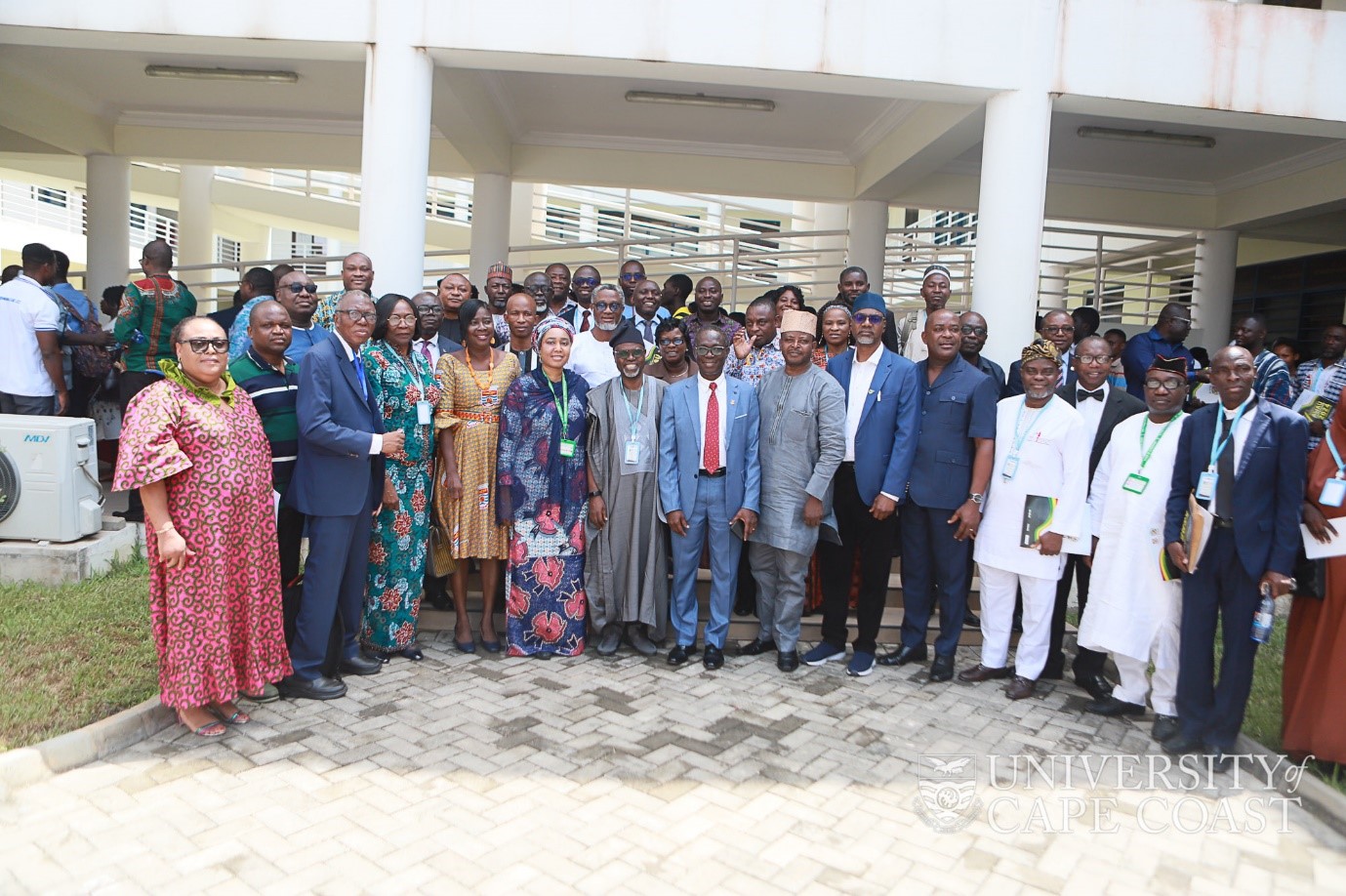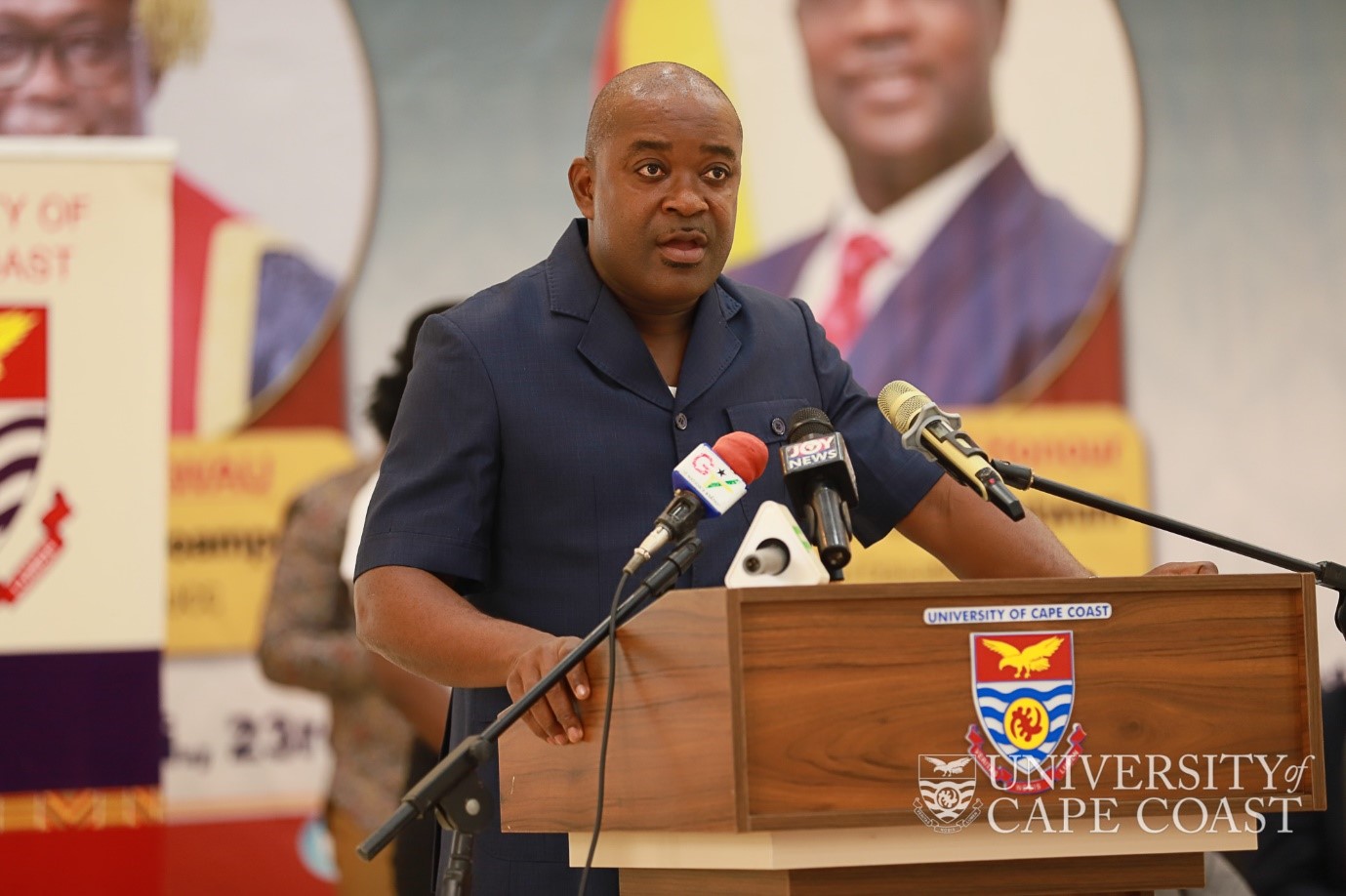The Association of West Africa Universities (AWAU) has held its 9th Conference at the University of Cape Coast (UCC) with a call on stakeholders to promote quality tertiary education in the sub-region.
The three-day conference was on the theme, “Promoting quality tertiary education in West Africa through collaboration, regional integration and technology.”
The event brought together stakeholders in education including scholars, tertiary education managers and researchers from West Africa to discuss modern strategies to advance quality tertiary education.
The Registrar of the Joint Admission Board of Nigeria (JAMB), Prof. Ishaq Oloyede, in a keynote speech read on his behalf, noted that quality education, collaboration, regional integration and technology were prerequisite solutions to the intractable problems of poverty, under development, unemployment and misgovernance.
“This should advance, for us, mutual reinforcement of values designed to benefit from the changing trends in higher education globally” he continued.
Prof. Oloyede, therefore, called for policies aimed at providing financial assistance to tertiary institutions to enhance research and knowledge generation.
He added that the penchant for education beyond the sub-region called for strenuous efforts to resource retarded institutions into making them attractive to provide quality education for career enhancement, skills and employability among others.
Prof. Oloyede indicated that Artificial Intelligence (AI) had emerged as a game-changer for tertiary institutions across the globe.
He, however, pointed out the widespread concern about AI on ethical issues, mentioning Chat GPT, and called for effective regulations to guard its use in the education sector.
He said Science, Technology, Engineering and Mathematics (STEM) education was necessary for technological advancement and an essential tool to develop the continent.
According to him, “STEM education is a transformative force that opens doors of opportunities, offering young minds the skills needed to tackle the challenges of the 21st Century.”
He mentioned some of the remarkable achievements of the JAMB, a Nigerian entrance examination board for tertiary-level institutions and added that the Board was ready to share its success story with other tertiary institutions in West Africa.
For example, Prof. Oloyede said that JAMB had sanctioned foreign tertiary institutions awarding fake certificates to persons who did not deserve them.
He added that the Federal Government through the Federal Ministry of Education announced the suspension of evaluation and accreditation of degree certificates from the Republic of Benin and Togo, as well as, banning 18 foreign universities operating in Nigeria.
The acting Director-General of the Ghana Tertiary Education Commission (GTEC), Prof. Ahmed Jinapor Abdulai, addressing the conference, said promoting quality tertiary education in West Africa required giant steps from all major stakeholders.
"For us at GTEC, we believe that quality, as a requirement in tertiary educational delivery, is not just a need but a necessity; stressing that accreditation was a basic requirement for quality assurance, one that guaranteed adherence to the tenets, norms and standards of practice, he said.
Ag. Director-General of GTEC, Prof. Ahmed Jinapor Abdulai
According to him, collaboration, regional integration and technology could be enhanced through quality tertiary educational delivery, calling for minimum operational standards for delivery to guide tertiary education managers.
He urged private tertiary institutions in Ghana to adhere to the GTEC directive to charter or risk being closed down after the expiration of the application window of August 2024.
Prof. Jinapor Abdulai said GTEC was leaving no stone unturned to revamp tertiary education delivery in Ghana to attract foreign resource mobilisation to grow the Ghanaian economy.
The Vice-Chancellor of UCC, Prof. Johnson Nyarko Boampong, in an address, urged the public not to throw caution to the wind and fall victim to the fake certificate syndicates in the sub-region.
He underlined the need for credible tertiary institutions to come together to wage relentless war against the increasing spate of certificate racketeering that all tertiary institutions were grappling with.
“Quite recently, … others are using Cape Coast University to produce certificates for unsuspecting persons. So, you should be careful when you see any certificate with Cape Coast University, then it is not coming from the University of Cape Coast because we give hard-earned certificates” he noted.
Source: Documentation and Information Section-UCC


